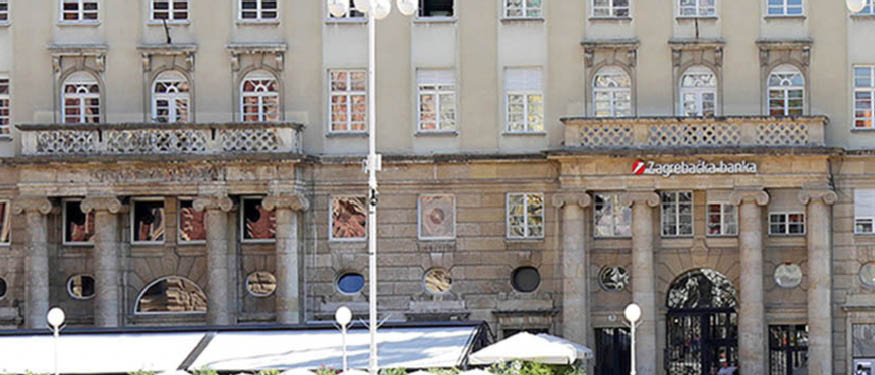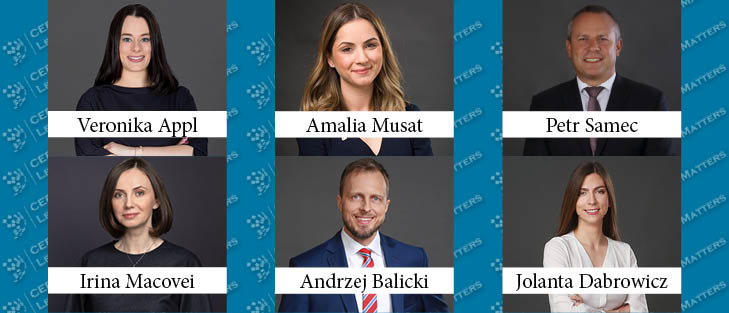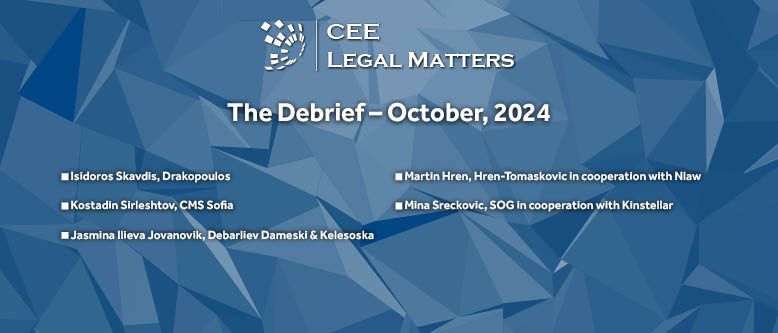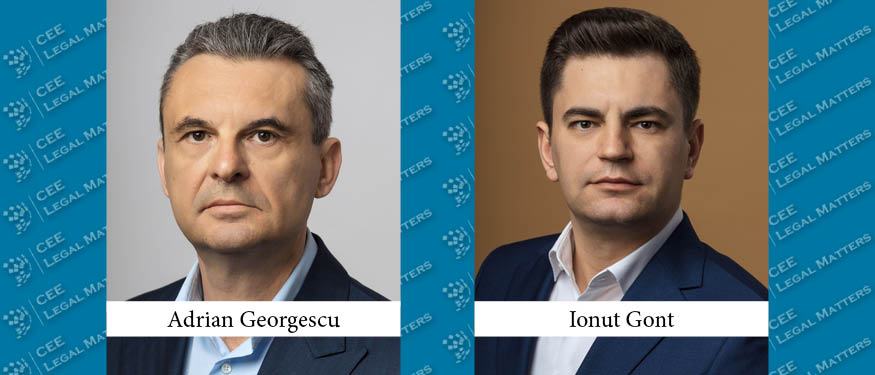A&O Shearman and Divjak, Topic, Bahtijarevic & Krka have advised Partners Group on the sale of VSB Group to French energy company TotalEnergies. Jones Day reportedly advised TotalEnergies.
Divjak, Topic, Bahtijarevic & Krka Advises EBRD on EUR 80 Million Portfolio Guarantee to Zagrebacka banka
Divjak, Topic, Bahtijarevic & Krka has advised the EBRD on providing Zagrebacka Banka with an uncapped unfunded portfolio guarantee of up to EUR 80 million under the European Union’s InvestEU Program.
“Black Friday” Trademark Controversy: Can A Shopping Phenomenon Be Owned?
Since 2016, the term “Black Friday” has been registered as a trademark in Germany, granting exclusive rights to a single company, Super Union Holdings Ltd. of Hong Kong, for its use in advertising. This registration covered over 900 goods and services, restricting other businesses from using the term in their promotions. However, recent legal developments have definitively resolved this contentious issue.
FDI Screening in CEE: A CEE Legal Matters Round Table
On November 7, 2024, M&A experts from Austria, Bosnia & Herzegovina, Croatia, Greece, Hungary, Moldova, Romania, and Ukraine participated in a virtual round table moderated by CEE Legal Matters Managing Editor Radu Cotarcea to discuss the FDI screening regimes in their country and key developments in the area on the horizon.
DTB Advises Digital Realty on Sale of Cloud Services Business in Croatia to Databox
Divjak, Topic, Bahtijarevic & Krka has advised Digital Realty on the sale of its cloud services business in Croatia to Databox.
Savoric & Partners Advises Jadran Hoteli on Partnership with Accor
Savoric & Partners has advised Jadran Hoteli on its partnership with Accor.
Schoenherr Advises Pan-Pek on EUR 20 Million Financing from PBZ and EBRD
Schoenherr has advised Pan-Pek on securing a EUR 20 million long-term loan from Privredna Banka Zagreb, part of the Intesa Sanpaolo Group, in cooperation with the European Bank for Reconstruction and Development.
Schoenherr Announces 12 New Partners in Latest Promotion Round
Schoenherr has promoted Vienna-based Stefanie Aichhorn-Woess, Alfred Amann, Johannes Frank, Ayla Ilicali, Christoph Jirak, Sara Khalil, Sebastian Lukic, Johannes Stalzer, and Stefanie Stegbauer, Zagreb-based Kresimira Kruslin, Warsaw-based Daniel Radwanski, and Bucharest-based Nora Olah to Partner (already announced in August this year).
New Croatian Lobbying Act: Key Takeaways for Companies
The Croatian Lobbying Act (Official Gazette 36/2024, the “Act”) entered into force on 1 October 2024, marking Croatia’s first comprehensive regulation of lobbying activities. The Act establishes significant new rules for lobbyists and companies alike, requiring compliance when interacting with public officials to advocate for business or organisational interests. This regulatory development represents a transformative shift in how entities engage with policymakers and will necessitate careful attention to adherence with these newly established standards.
Schoenherr and Madirazza & Partners Advise RP Global on Mirova's EUR 480 Million Investment
Schoenherr and Madirazza & Partners have advised RP Global on Mirova's agreement to invest up to EUR 480 million in RP Global Energy. Clifford Chance reportedly advised RP Global as well. White & Case's Paris office reportedly advised Mirova. Spain-based Uria Menendez, Portugal-based Abreu Advogados, France-based LPA-CGR Avocats, Germany-based Chatham Partners, and the Italian office of DWF reportedly advised RP Global on the matter as well.
Legal Guidance: Integrating EV Charging Stations into Commercial Property Infrastructure
While legal professionals may not possess the solution for upcoming winter to the widely discussed problem of frozen Tesla door handles or expertise in selecting personalized lock sounds for electric vehicles (EVs), we do offer valuable advice for landlords aiming to integrate their current property infrastructure with the growing prevalence of EV charging stations.
Tus & Grzic, Kovacevic Prpic Simeunovic, and Gugic Kovacic Krivic Advise on Mandatory Takeover Bid for Cakovecki Mlinovi
Tus & Grzic has advised mandatory pension funds management company PBZ Croatia Osiguranje on its participation in a EUR 28 million mandatory takeover bid for Cakovecki Mlinovi with Mlin i Pekare and Allianz ZB participating as other bidders. Kovacevic Prpic Simeunovic advised Mlin i Pekare and its affiliate Plodinec. Gugic Kovacic Krivic advised Allianz ZB.
Stankovic & Partners Advises SuperPadel Alliance on Partnership with Croatian Padel Federation and Diagonal Padel Pro Academy
Stankovic & Partners has advised SuperPadel Alliance on a partnership agreement with the Croatian Padel Federation and the Diagonal Padel Pro Academy in Madrid.
Ilej & Partners and Gospic Plazina Stojs Advise on TeraPlast's Acquisition of Optiplast
Ilej & Partners, in cooperation with Karanovic & Partners, has advised TeraPlast Group on its acquisition of 70% of Optiplast from Danijel Drcic. Gospic Plazina Stojs reportedly advised the seller.
A CEE Comparison Guide on Medical Devices Advertising: An Interview with DLA Piper’s Life Sciences Team
Earlier in 2024, DLA Piper published its Medical Devices Advertising: CEE Comparison Guide, which reviews advertising regulations for medical devices in Austria, Croatia, the Czech Republic, Hungary, Poland, Romania, Slovakia, and Slovenia. Life sciences team members who worked on the guide spoke with CEE Legal Matters about some of the regulatory differences across CEE and the practical implications for businesses.
Living and Lobbying in Croatia: A Buzz Interview with Goran Ilej of Ilej & Partners
Croatia is undergoing significant legal changes, particularly with the introduction of a real estate tax aimed at addressing housing shortages and regulating property use as well as a new lobbying law, according to Ilej & Partners in cooperation with Karanovic & Partners Senior Partner Goran Ilej.
Croatian Government Unveils New Property Tax Initiative
Effective from 1 January 2025, Croatia will introduce a new property tax law. This new law will replace the current vacation home tax and apply to all residential properties, with certain exemptions. Local governments will institute the new law and set tax rates within a specified range by taking into account property characteristics and other factors.
The Debrief: October, 2024
In The Debrief, our Practice Leaders across CEE share updates on recent and upcoming legislation, consider the impact of recent court decisions, showcase landmark projects, and keep our readers apprised of the latest developments impacting their respective practice areas.

































